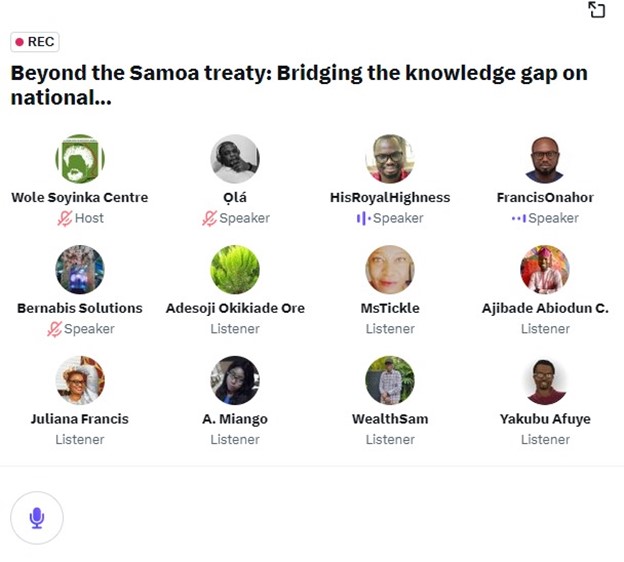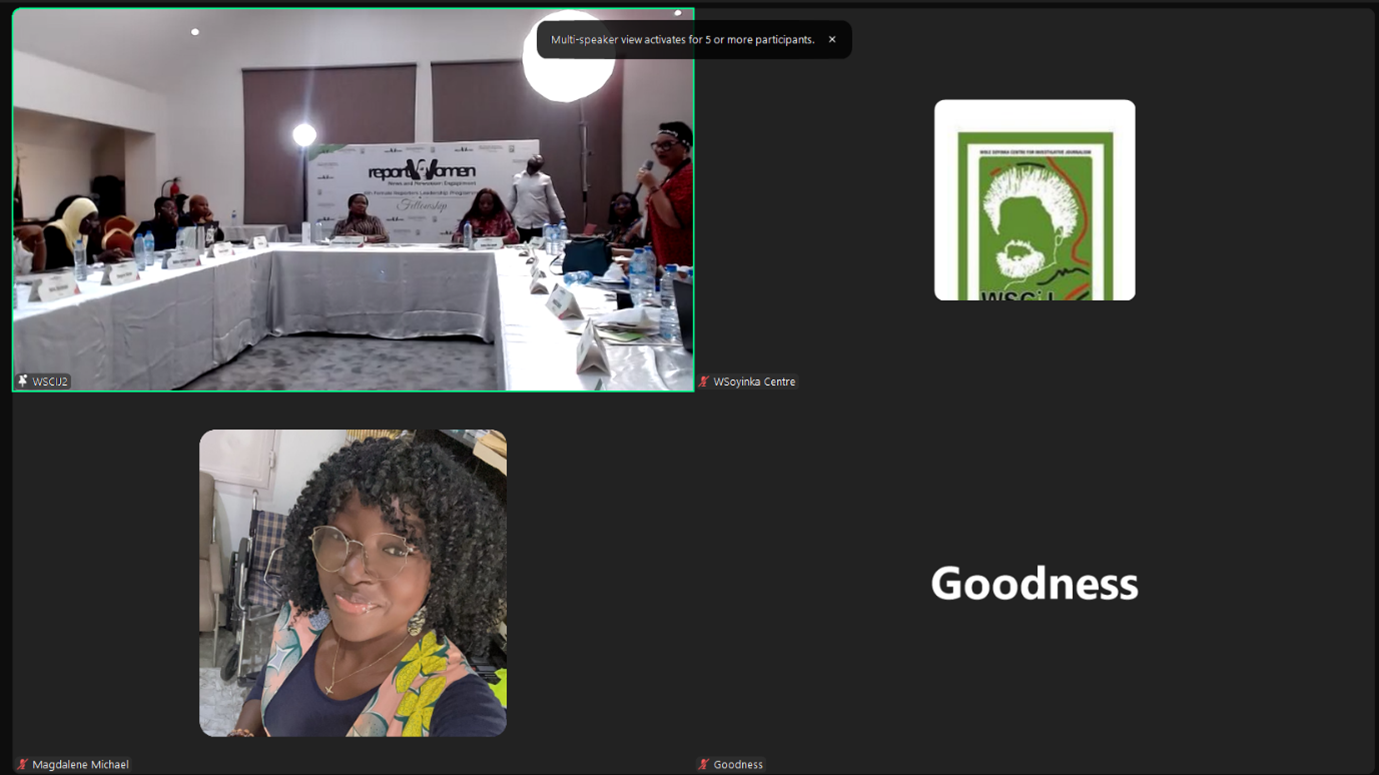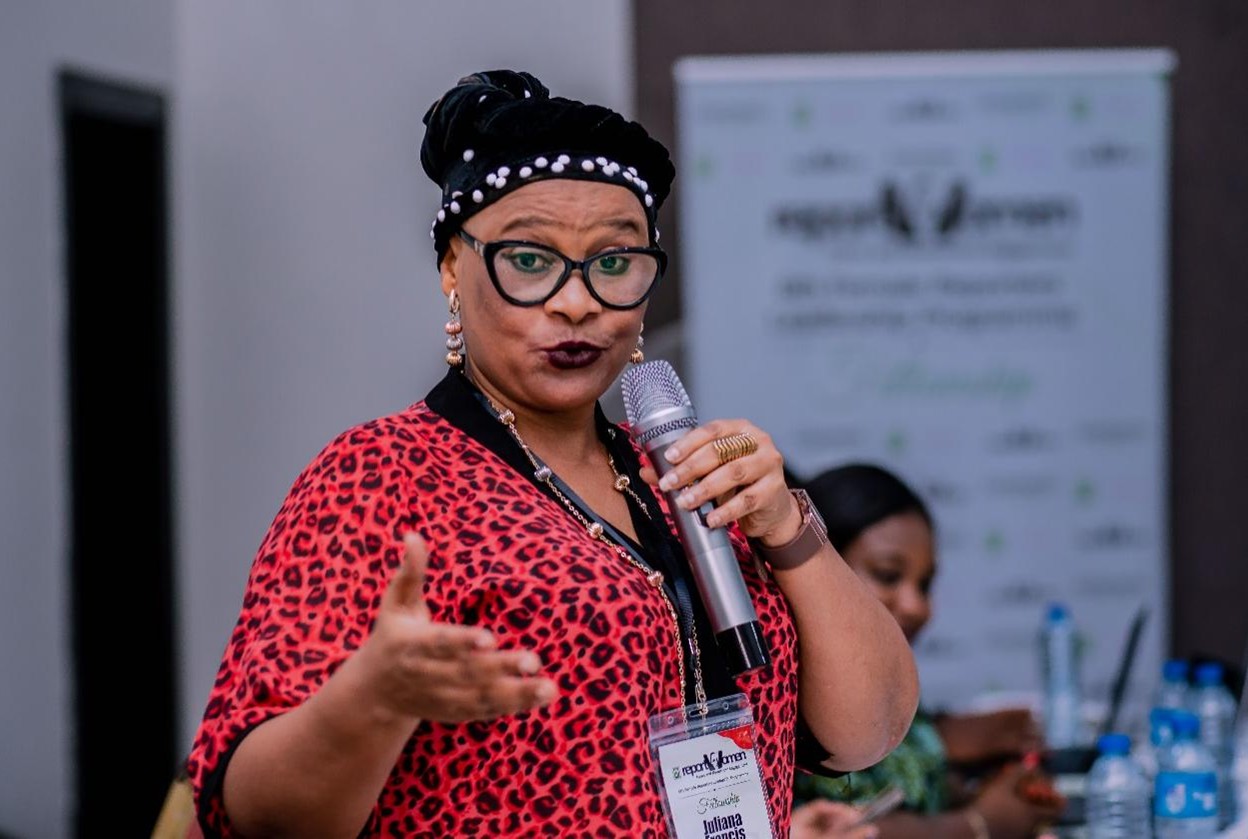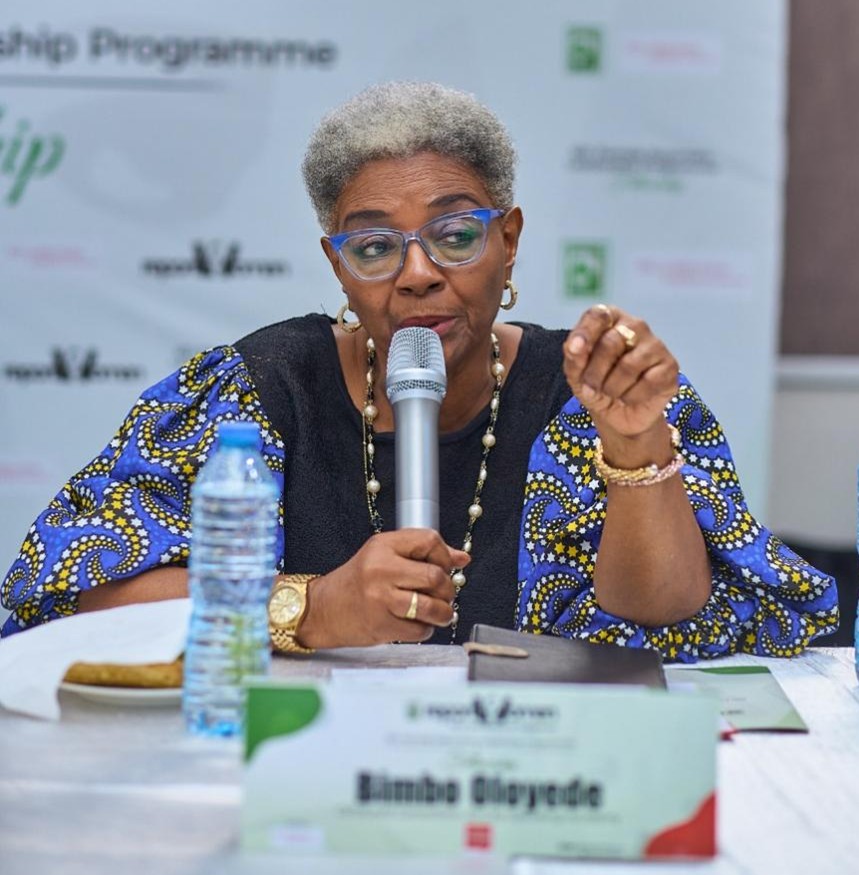To mitigate public backlash against national and international policies, experts at the Journalism & Society Conversations hosted by the Wole Soyinka Centre for Investigative Journalists (WSCIJ) on Tuesday, 16 July 2024, have called for the Nigerian government to implement comprehensive national communication strategies and proactive engagement with citizens. They emphasised the critical role of media scrutiny in maintaining democratic integrity.
The experts who spoke as panellists at the event, titled ‘Beyond the Samoa Treaty: Bridging the knowledge gap on national policies,’ were Eno Mboho, Deputy Director of Accountability at the Centre for Journalism Innovation and Development (CJID); Francis Onahor, Programme and Communications Officer at Community Life Project (CLP); and Mustafa Adedeji Tukur, Director of the National Orientation Agency (NOA), Lagos State. The event was moderated by Bettina Nwelih, Broadcast Journalist at News Central.
Mboho argued that the public outcry over the Samoa Treaty could have been avoided with a more intentional communication strategy. He stressed the importance of a robust engagement between the government and its citizens to address existing mistrust. Mboho noted that policies signed by the government, such as the Samoa Treaty, have far-reaching economic, social and cultural implications.
He suggested that the government should collaborate with reputable civil society organisations (CSOs) and media outlets with both urban and grassroots followings, tailor messages for different age groups, and engage regularly with media during policy formulation. Mboho also proposed revitalising the Federal Radio Corporation of Nigeria (FRCN) and Nigeria Television Authority (NTA) to better drive discussions on government policies.
Building on this perspective, Onahor lamented the information gap in the civic space, highlighting discrepancies between government statements and actions. He urged Nigerians to unite beyond ethnic, religious, gender, or political lines in public discourse and called on the media to maintain scrutiny of government activities to uphold democratic values. He called for a national communication policy to guide engagement beyond routine briefings. He noted that communication should be a two-way process, providing opportunities for feedback, and encouraged the media to create platforms for in-depth discussions on policies and treaties.
The Lagos State director of the National Orientation Agency (NOA), Tukur, discussed the agency’s recent efforts to enhance communication of government policies. Under the leadership of Lanre Issa-Onilu, the NOA has introduced weekly reports from its offices across Nigeria’s 774 Local Government Areas and launched a weekly online newspaper to explain government policies and programmes. Tukur also noted the challenges of Nigeria’s diverse demographic landscape in effective communication.
The WSCIJ Journalism & Society Conversations aims to bring stakeholders together to address key issues such as challenges to press freedom, regulatory frameworks, and the crucial role of investigative journalism in ensuring government accountability and supporting nation-building.
Signed,
WSCIJ Team








